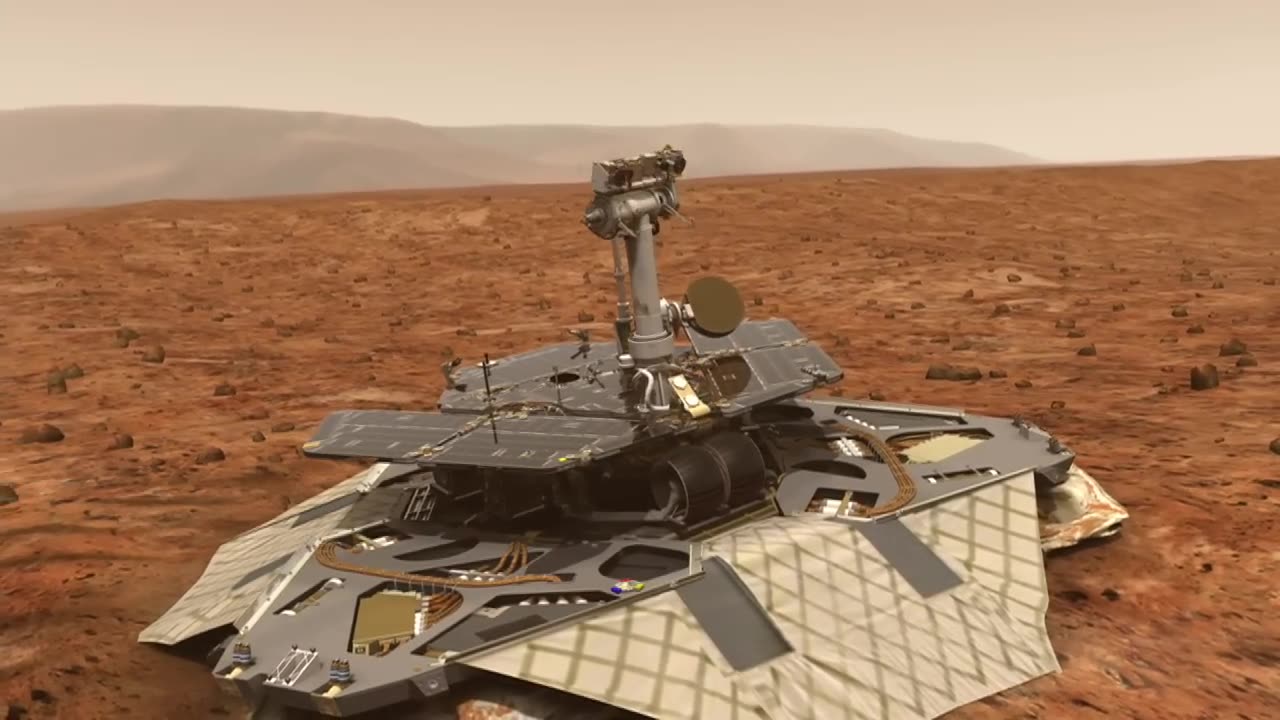Premium Only Content

Mars exploration recovery!
Mars exploration refers to the scientific study of Mars, conducted through the use of robotic spacecraft and missions. It involves sending spacecraft to Mars to gather data about the planet's geology, climate, atmosphere, and potential habitability.
Exploration of Mars began in the early 1960s with the Soviet Union's Mars program, which included a series of missions that aimed to orbit and land on the planet. The first successful mission to Mars was the Mars 3 mission in 1971, which successfully landed a spacecraft on the surface but lost communication shortly after.
Since then, numerous missions have been sent to Mars by various space agencies and nations, including NASA's Viking program in the 1970s, which successfully landed two spacecraft on the surface and conducted experiments to search for signs of life. More recent missions, such as NASA's Mars Science Laboratory (MSL) mission, which included the Curiosity rover, have also been successful in exploring the planet's surface and gathering important data.
The primary objectives of Mars exploration are to understand the planet's history, geology, and potential for life. Scientists are particularly interested in studying Mars' past climate, potential for water, and the possibility of past or present microbial life. Recent discoveries, such as the presence of liquid water under the surface and the detection of organic molecules, have increased the excitement and possibilities for future exploration.
Future exploration missions to Mars include NASA's Mars 2020 mission, which aims to search for signs of past microbial life and collect samples for potential return to Earth. Additionally, private space companies like SpaceX have expressed interest in sending humans to Mars in the future, potentially establishing a human presence on the planet.
Overall, Mars exploration has been a significant area of scientific research, providing valuable insights into the planet's history and potential for life. Continued missions and advancements in technology will further our understanding of Mars and pave the way for future human exploration and colonization.
-
 1:43:07
1:43:07
Tucker Carlson
1 day agoBishop Barron on the New Pope, the Foolishness of Atheism, and Why Young Men Are Turning to Christ
204K200 -
 3:24:07
3:24:07
Barry Cunningham
7 hours agoJD Vance And Marco Rubio Speak at American Compass Fifth Anniversary Gala | And More News!
66.7K30 -
 2:52:45
2:52:45
TimcastIRL
6 hours agoTrump Admin ARRESTS Boulder Terrorists ENTIRE FAMILY, Preps Deportations | Timcast IRL
184K101 -
 2:40:48
2:40:48
RiftTV/Slightly Offensive
8 hours agoBig, Beautiful SCAM? Elon FLIPS on Trump for WASTEFUL Bill | The Rift | Guests: Ed Szall + Matt Skow
57.3K15 -
 LIVE
LIVE
SpartakusLIVE
7 hours agoSpecialist TOWER OF POWER || Duos w/ Rallied
562 watching -
 3:24
3:24
Glenn Greenwald
6 hours agoPREVIEW: Sen. Rand Paul Interview Exclusively on Locals
95.5K60 -
 3:54:13
3:54:13
VapinGamers
5 hours ago $1.57 earned⚔ 🔥 Blades of Fire - Game Review and Playthru - !game !rumbot #sponsored
37.8K5 -
 9:58:17
9:58:17
ZWOGs
10 hours ago🔴LIVE IN 1440p! - Max Payne 3, Halo Infinite, Marvel Rivals, Splitgate 2, & Maybe Helldivers 2 - Come Hang Out!
14.6K -
 1:14:00
1:14:00
The Daily Signal
6 hours ago🚨LIVE: Democrats Champion Illegals Amid MORE ICE Arrests
45.8K1 -
 5:21:25
5:21:25
RaikenNight
5 hours ago $0.21 earnedFinally got my surgery scheduled! Playing Tainted Grail
9.81K